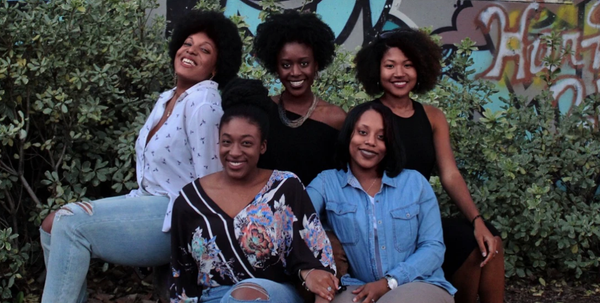On Wednesday, March 14, students from all around the country walked out of their classes to protest gun control legislation and their inactivity in gun control reform. The courageous display of political expression came in the wake of the shooting at Marjory Stoneman Douglas High School.
The walkout, however, sparked other movements that coincide with the national outcry in the aftershock of the multitude of mass shootings our country has seen in the past year.
In a school in Virginia, sixth-grade teacher Jodie Katestos began a new movement with a poster which wrote: “Walk Up, Not Out." This poster also included four 'alternatives' to walking out:
“Walk up to the kid who sits alone and ask him to join your group."
“Walk up to the kid who never has a voluntary partner and offer to be hers."
“Walk up to your teachers and thank them."
“Walk up to someone and just be nice."
Among many other problems with the “Walk Up" movement, it fails to recognize some of the most prominent problems that cause gun violence and mass school shootings. Its main premise rests on the claim that school shootings can be stopped by simply being kind to one another.
Not only does this invalidate the severity of mental illness, but this logic would also assume that it is the victims (the students in the schools who are just there to learn) who are at fault for the mental illnesses that could cause a child to shoot his fellow classmates. This places an unreasonable burden on students: that they are the only ones who can stop a school shooter. The logic that is the basis of the “Walk Up, Not Out" movement is flawed.
In claiming that a simple act of kindness would stop a school shooting, we discredit the severe mental illnesses that would cause a student to shoot and kill his fellow classmates.
Nikolas Cruz, the Stoneman Douglas shooter, was known by other students, teachers, and parents to have aggressive behavior and a history of brutality.
In an article by Isabelle Robinson, she tells the story of how she attempted to befriend Cruz after she was assigned to him as a tutor through the school's peer-counseling program. This is also after she was assaulted by him a year beforehand as he threw an apple at her back hard enough to make her cry.
After her session, where she helped Cruz organize his binder and finish his homework, she was proud that she was able to help him, even through the fear and discomfort she felt as he cussed and ogled at her. Later, she states: “Looking back, I am horrified. I now understand that I was left, unassisted, with a student who had a known history of rage and brutality."
She assures that she does not want to discredit the impact that students can have on their peers, but Cruz was never bullied or picked on by classmates. He was feared.
Students should not be expected to be able to cure their classmates of aggressive, psychopathic behavior. Mental illnesses require so much more attention and help than the simple kindness from peers.
I am not here to disregard the “Walk Up" movement completely. Rather, I believe schools should use it to instill values of kindness and inclusion in their students.
However, with the way “Walk Up" has been presented, the biggest problem is that it attempts to replace “Walk Out" with a set of ideas that focuses blame solely on the students rather than the governing body of our country, who has done very little so far to deal with the exponential rise in rates of mass shootings, mental health issues, and suicide.
So, then, we should be using this movement in tandem with the “Walk Out" movement to not only create more of a sense of community within schools, but also to express our discontent and outrage with gun control legislation who refuse to lessen the ability of those with mental disorders and illnesses to obtain guns.
Absolutely Walk Up, but also Walk Out. It takes both to win the fight against gun violence. Young voices are the voices of change, and we are crying out for it. Whatever we do, we cannot continue to buy into a culture based on victim-blaming and unfair expectations. We deserve more.
Keep walking out.





















